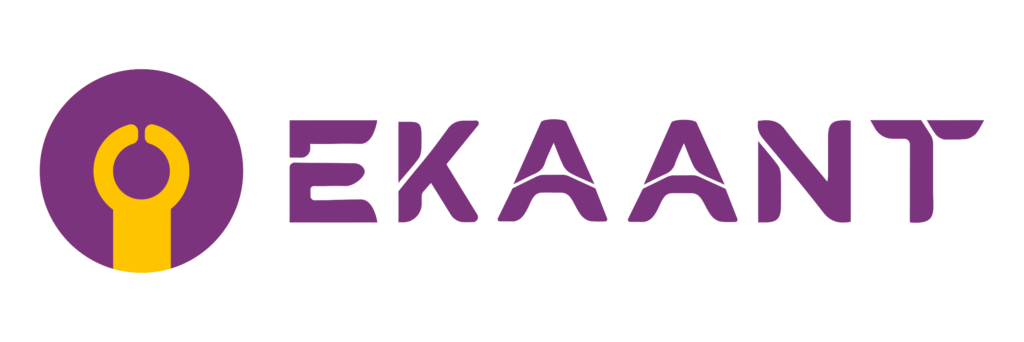We Worked With!





International SEO is a set of strategies and tactics that are used to optimize a website for users in different countries and regions around the world. It is a specialized form of search engine optimization (SEO) that involves adapting a website to rank well in the search engines of other countries, often in languages other than the website’s native language.
There are many companies and agencies that offer international SEO services to help businesses reach a global audience. These services typically include keyword research and analysis, content optimization, link building, and technical SEO. They can also include social media marketing, PPC advertising, and other online marketing tactics to help drive traffic and sales from international markets.
What is International SEO
International SEO is a way for businesses to expand their reach beyond their home country and tap into the potential of global markets. By optimizing their website for international users, businesses can increase their visibility in search engines and attract more qualified traffic to their site, which can ultimately lead to more sales and revenue. Key factors involved in international SEO include language translation, localization of content, and the use of country-specific top-level domains. It also involves understanding cultural and social differences between different countries and adapting the website and its content to be more relevant and appealing to users in those countries.
Benefits of International SEO
- Increased traffic: By optimizing a website for users in different countries and languages, businesses can attract more qualified traffic to their site from a global audience.
- Greater visibility: International SEO can help a website rank well in search engines in different countries and languages, increasing its visibility to users around the world.
- Increased sales and revenue: By reaching a larger and more diverse audience, businesses can increase their sales and revenue from global markets.
- Enhanced credibility: A website that is optimized for international users and appears in the search results of different countries and languages is more likely to be seen as credible and trustworthy by users.
- Competitive advantage: By targeting specific countries and languages, businesses can gain a competitive advantage over their rivals in those markets.
- Brand awareness: International SEO can help businesses increase brand awareness and recognition in new markets.
- Improved user experience: By providing content in multiple languages and adapting to the cultural and social differences of different countries, businesses can create a better user experience for their international audience.
- Increased customer loyalty: By providing a localized and personalized experience for users in different countries, businesses can build customer loyalty and retention in those markets.
Our International SEO Work Process
- Determine target countries and languages: The first step in implementing international SEO is to identify the countries and languages that you want to target. This will help you determine which strategies and tactics to focus on.
- Set up a country-specific domain or subdomain: One way to target specific countries is to use a country-specific top-level domain (e.g. .de for Germany, .cn for China) or a subdomain (e.g. fr.example.com for France). This will help search engines understand that your website is targeting a specific country or region.
- Translate and localize content: In order to effectively target users in different countries and languages, it is important to translate and localize the content on your website. This includes not only the text, but also any images, videos, and other media.
- Use hreflang tags: Hreflang tags are HTML attributes that tell search engines which version of a webpage is intended for which language and country. These tags should be added to the head section of each page to help search engines understand which version of the page to show to users in different countries and languages.
- Optimize for local search: It is also important to optimize for local search by including local keywords and information, such as the name of the city or region, in the content of your website. This will help your website rank well in the search results of users in those specific locations.
- Build international links: Link building is an important part of SEO, and it is especially important for international websites. Building links from websites in the target countries and languages will help improve the credibility and authority of your website in those markets.
- Monitor and optimize: As with any SEO strategy, it is important to monitor the performance of your international website and make ongoing optimizations as needed. This may include adjusting your keyword strategy, updating content, and building additional links.
Services Offered!
- Hreflang tags:
These HTML attributes tell search engines which version of a webpage is intended for which language and country. - Keyword research and analysis:
Identifying the most relevant and effective keywords for different countries and languages is an important part of international SEO. - Content optimization:
Optimizing website content for specific countries and languages can help improve the relevancy and quality of the content for users in those markets. - Link building: Building links from websites in the target countries and languages can help improve the credibility and authority of a website in those markets.
- Technical SEO: Ensuring that a website is properly configured and optimized for international users, including the use of hreflang tags and XML sitemaps, is an important part of international SEO.
- Social media marketing: Promoting a website on social media platforms in different countries and languages can help drive traffic and sales from those markets.
- PPC advertising: Running pay-per-click (PPC) campaigns in different countries and languages can help drive targeted traffic to a website from those markets.
- Localization of content: Localization involves adapting content to be more relevant and appealing to users in different countries, taking into account cultural and social differences.
How can you get started with International SEO for my brand?
- Contact us: The first step is to reach out to us and let us know that you are interested in international SEO services. You can do this through our website or by contacting us directly.
- Initial consultation: During the initial consultation, we will learn more about your business, your goals, and your target markets. We will also discuss your current website and any existing SEO efforts.
- SEO audit: We will conduct a thorough SEO audit of your website to identify any technical issues or areas for improvement.
- Strategy development: Based on the results of the SEO audit and our consultation with you, we will develop a customized international SEO strategy that is tailored to your business and your target markets.
- Implementation: Once the strategy has been developed, we will work with you to implement the various tactics and techniques that are included in the strategy. This may include language translation, localization of content, keyword research and analysis, content optimization, and link building.
- Monitoring and optimization: As with any SEO campaign, it is important to monitor the performance of your website and make ongoing optimizations as needed. We will work with you to track the progress of your international SEO campaign and make any necessary adjustments to ensure that it is meeting your goals.
How to choose International SEO services agency?
There are a few key factors to consider when choosing an international SEO services agency:
- Experience: Look for an agency that has a track record of success in international SEO and has experience optimizing websites for different countries and languages.
- Expertise: Choose an agency that has a team of experts who are knowledgeable about the latest international SEO strategies and tactics.
- Services offered: Make sure the agency offers the services that you need, such as language translation, localization, keyword research and analysis, content optimization, and link building.
- Case studies and testimonials: Look for an agency that has case studies and testimonials from clients in different countries and languages to see how they have helped businesses succeed in international markets.
- Pricing: Consider the agency’s pricing structure and make sure it is competitive and transparent.
- Communication and support: Choose an agency that is responsive and easy to work with, and that provides ongoing support and communication throughout the campaign.
- Culture fit: It is important to choose an agency that is a good fit for your business culture and values. Look for an agency that shares your vision and is committed to helping you succeed in international markets.
Get a proposal!
FAQs
International SEO is important because it allows businesses to expand their reach beyond their home country and tap into the potential of global markets. By optimizing their website for users in different countries and languages, businesses can increase their visibility in search engines and attract more qualified traffic to their site, which can ultimately lead to more sales and revenue.
To optimize a website for multiple countries, businesses can take the following steps:
Determine target countries and languages: Identify the countries and languages that you want to target.
Set up a country-specific domain or subdomain: Use a country-specific top-level domain (TLD) or subdomain to signal to search engines that your website is targeting a specific country or region.
Translate and localize content: Translate and adapt the content of your website to be more relevant and appealing to users in different countries, taking into account cultural and social differences.
Use hreflang tags: These HTML attributes tell search engines which version of a webpage is intended for which language and country.
Optimize for local search: Include local keywords and information in the content of your website to help it rank well in the search results of users in specific locations.
Build international links: Build links from websites in the target countries and languages to improve the credibility and authority of your website in those markets.
Monitor and optimize: As with any SEO strategy, it is important to monitor the performance of your international website and make ongoing optimizations as needed.
Whether or not international SEO is right for your small business will depend on your business goals and target audience. If your business is targeting customers in different countries or languages, or if you have a product or service that has global appeal, then international SEO can be a valuable investment.
